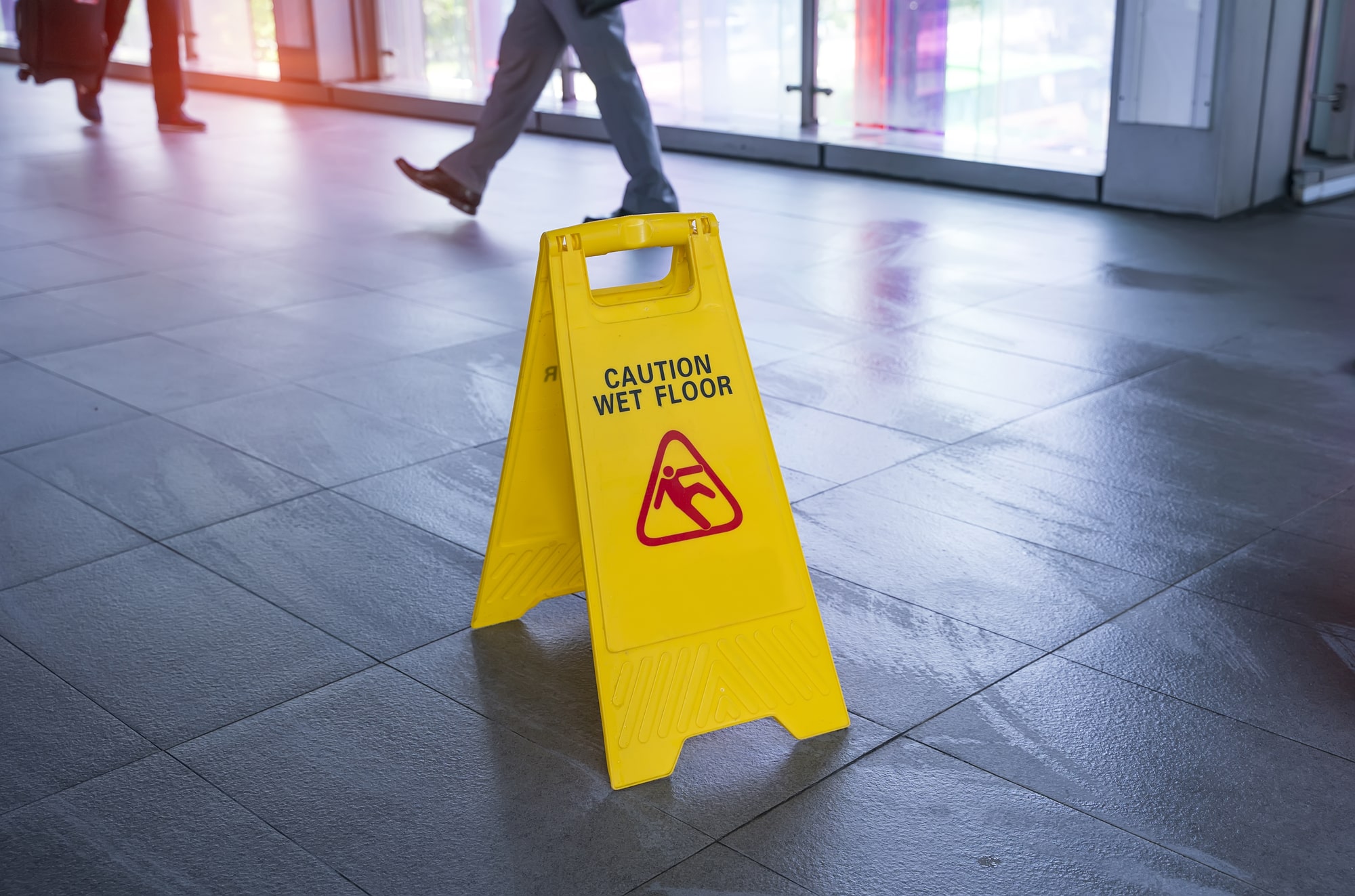Slipping and falling might seem like a minor event, but hitting your head in the process can lead to something more serious—a concussion. Not every head bump causes a traumatic brain injury, but it’s important to know the warning signs and understand when to take action.
Many people underestimate their symptoms or delay getting care. If you’ve had a fall and are experiencing strange or persistent symptoms, knowing what to look for could protect your health and support any legal claim you may have.
This type of injury is especially common in public places like grocery stores, parking lots, or sidewalks, where a wet floor, uneven pavement, or poor lighting can cause a person to lose their balance. Even if the fall doesn’t seem severe, the force of a sudden impact to the head can affect the brain. In many cases, our brain injury attorney can help determine if you may be eligible to recover compensation for medical costs, missed work, and pain and suffering.
Early Concussion Symptoms People Often Overlook
A concussion doesn’t always mean loss of consciousness. Some people may walk away from the fall feeling fine, only to notice symptoms hours later. It’s common to feel dazed or confused immediately after the incident. If you notice dizziness, nausea, headaches, or sensitivity to light or noise, you may be dealing with more than just a minor bump.
Fatigue, balance issues, or feeling like you’re “off” are other signs to take seriously. These symptoms might come and go, or gradually worsen. If you find yourself forgetting things, struggling to focus, or feeling more emotional than usual, these may also indicate a mild brain injury.
Why You Should See A Doctor
Concussions can’t be seen on a typical scan the way a broken bone can, but your doctor can assess your symptoms and run tests to rule out more serious conditions like bleeding in the brain. No matter what symptoms you’re experiencing, it’s important to visit your doctor because any delay in diagnosis might make your recovery longer and more difficult.
Getting medical documentation is also critical if you’re thinking about filing a legal claim. Medical records serve as evidence that the injury occurred and that it impacted your daily life. A claim could help you recover financial support for your care and time away from work.
What To Do After A Fall
If you slip and hit your head, don’t brush it off. Take note of where the fall happened and whether there were any warning signs posted. If you’re able, take photos of the scene and talk to any witnesses. Report the incident to a store manager, property owner, or supervisor and request a copy of the report if one is made. Then seek medical care as soon as possible.
Injured On Someone Else’s Property? Consider Filing A Claim
Once you’ve taken care of your immediate health needs, it may help to speak with a slip and fall lawyer. They can review your situation, explain your legal options, and let you know what your next steps could be. In many cases, there are deadlines for filing a claim, so it’s better not to wait.
Paying attention to what your body is telling you and getting the right help—both medical and legal—can make a big difference. Injury attorneys like our colleagues at Choulos & Tsoi Law Firm can attest to how often these cases are overlooked until symptoms become worse. If you believe your head injury was caused by unsafe conditions, don’t hesitate to seek support and understand your rights.

